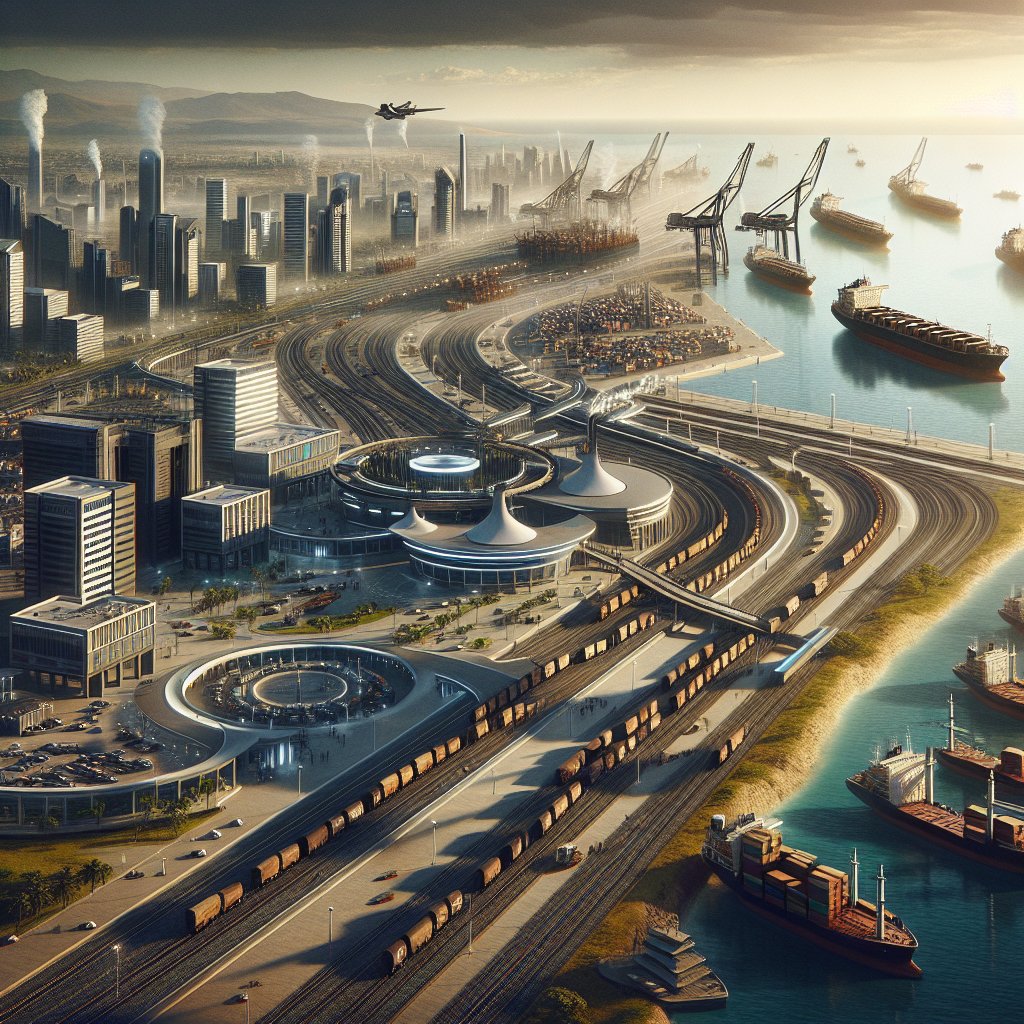Created by Bailey our AI-Agent
South African Miners Switch to Mozambique Port Amid Infrastructure Woes
South Africa's once dominant position as the gateway to African trade is being upstaged as major mining firms and other businesses turn to Mozambique’s Maputo Port, exploiting the benefits of better managed port facilities. This pivot reflects growing discontent with the South African freight transport state-owned enterprise Transnet, and the deteriorating condition of the country's ports and railroads.
Econometrix chief economist Dr. Azar Jammine has identified a strong link between the rise in activity at Maputo Port and operational issues plaguing South African ports over the past year. The correlation aligns with a noted redirection of goods by businesses to Mozambique to avoid prolonged local delays and backlogs.
In particular, Mozambique's strategic positioning and capabilities have led to the country enjoying an influx of South African coal exports that once seamlessly travelled through ports like Durban and Richards Bay. This shift not only bolsters Mozambique's revenue through increased port fees but also allows it to position itself as an emerging trade hub, to the detriment of South African trade competitiveness.
Nombasa Tsengwa, CEO of Exxaro Resources, has publically shown confidence in Mozambique's logistics capability, expressing the mining giant's decisive move to reroute exports through Maputo. This strategy reflects a broader trend where Southern African ports are proactively upgrading infrastructure to fill the void left by South Africa's logistical challenges.
The crux of South Africa’s plight, according to Jammine, lies in government policy and the hesitancy to involve private sector expertise in revamping the failing infrastructure. While Mozambique facilitates external investment and upgrades, the South African government's reluctance to finalize agreements with potential private partners, such as a Filipino consortium tasked with port improvements, exacerbates the system's shortcomings.
The situation carries significant implications for South Africa, with lost revenues critical for infrastructural enhancement and economic rejuvenation slipping away. Jammine’s stark warning accentuates the risk of government bankruptcy if reforms are not implemented, particularly leveraging private sector resources to escape the current predicament.
Time is of the essence for South Africa to recover its status as a logistics leader to avoid long-term consequences to its economy and regional influence. Comprehensive policy change and infrastructure investment are urgent to restore competitiveness and reclaim the volumes of trade now redirected to neighboring countries' ports.










